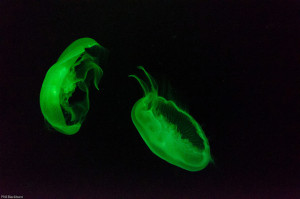As a scientist watched jellyfish float in Friday Harbor, Washington, he wondered what caused them to fluoresce green. It took years of determination to unravel the mystery behind the green glow, but he finally discovered that a protein, which absorbed blue light and gave off green light, was behind the fluorescence. It is the seemingly inconsequential discoveries, leading to unexpected advances in society, that are the foundation of basic science research. Unfortunately, there is a fundamental misunderstanding of how basic science research works. Out of thousands of research projects, there is no way to know in advance if the results will have value. Failure in research is likely and essential to success and scientific progress.

In 1975, Wisconsin senator William Proxmire began bestowing what he called The Golden Fleece Awards, which were meant to ridicule “wasteful” government spending. This award frequently targeted federally funded scientific research deemed silly or unnecessary to paint a negative picture that basic science research was a waste of time and money. Decades later a proponent of science research, House Representative Jim Cooper of Tennessee, created The Golden Goose Awards to counter this image. The Golden Goose Awards emphasize the value of federally funded basic science research using examples of seemingly obscure studies which led to major contributions in science. The first Golden Goose Award was presented in 2012 to the scientists behind the discovery of the green fluorescent protein (GFP) in jellyfish. Their discovery has lead to significant advances in molecular biology and our understanding of many human diseases. With bipartisan government support and a growing list of sponsors, the Golden Goose Awards have continued to recognize breakthrough contributions to science and society over the past five years. In 2016, the Golden Goose Award recognized a group of population studies scientists at the University of North Carolina for their pioneering longitudinal study on how social, behavioral, and environmental factors affect adolescent health. The study — called The National Longitudinal Study of Adolescent to Adult Health or Add Health for short — spans 20 years of open access research and has led to over 3,000 research publications on human health. Hopefully, with the recognition bestowed by the Golden Goose Award, the perception of basic science research will be transformed from wasteful to fundamentally important.
Peer edited by Akshay Sankar